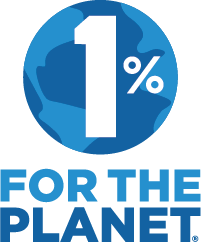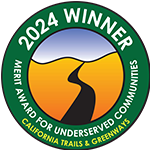#HighFivesAthlete Lindsey Runkel is Interviewed by Anna Maria Diaz-Balart from Pretty Damned Fast! 
I first saw Lindsey Runkel this past summer at Mountain Creek Bike Park in Northern New Jersey. I was hosting a downhill camp in conjunction with Kathi Krause of Dirt Rock and Root Training. We were a group of novice riders from New York City, a bit out of our element and nervous about some of the downhill trails we were about to hit. Lindsey was with a small group of friends, getting ready to do the same. I was fascinated by her bike, it looked almost extraterrestrial. I wanted to go up and ask a million questions. But I figured she was just there to ride, and well so was I, the million questions would have to wait.
Kathi would ultimately help me track down Lindsey, who immediately chastised me for not chatting with her that day! Lindsey’s warmth and positive energy come through immediately. And while she is driven by her sport and her road to recovery, she is equally passionate about advocacy for adaptive athletes. She knows that her presence alone at downhill bike parks is a powerful force in changing how people view adaptive athletes. She is a committed athlete, every bit as active in mountain biking as she ever was. She has recently started competing in Spartan Races as well. Its hard to believe how much she has accomplished in the year after her spinal cord injury. We can’t wait to see what the future holds for her. Her activism and athleticism are truly inspiring.
AM: You used to live in Arizona, did your love of Mtb start there or where you currently live in the Northeast?
LR: I was actually born in Texas and raised in the Northeast. I moved to Arizona in 2010 and that is where I fell in love with mountain biking. I started out as a road biker and got a job working at our local bike shop. I worked with only guys and only mountain bikers. They made fun of me (in a brotherly love kind of way) and finally convinced me to get on a mountain bike. A week later, I sold my road bike, bought my first mountain bike, and never looked back.
AM: Are you the only mountain biker in your family? Did you grow up in a family that rides?
LR: I am the only rider in my family. My parents own bikes and when I was growing up we would ride down to the beach together but it was nothing like what I do now. My parents think I’m nuts for mountain biking.
AM: I’m always struck by how deeply mountain biking makes you confront your fears and move past your mental limitations and by how powerfully a positive attitude can influence you as a rider. Do you pull a lot from your mountain biking history into your journey as an adaptive athlete?
LR: I think my bike has been my motivation to stay positive. I have kept both my trail bike and my downhill bike (that I crashed on) because I refuse to believe I won’t be back on them some day. I look at it and I know one day I’ll be back in that saddle. I think mountain biking shaped me as a person far before my injury. It helped me find who I was, it helped me find people who I truly connected with, and helped me become comfortable in my own skin. THAT change has been the driving force in my attitude towards recovery. I’ve pulled a lot from that in my journey. I am comfortable with who I am, able bodied or adaptive.
AM: Cycle sports have always seemed to be on the cutting edge for adaptive athletes, but maybe that’s just my impression as a Murderball fan. How would you describe your personal experience?
LR: It’s funny because handcycling is HUGE for adaptive athletes. It’s one of the first things I was pushed towards in recreational therapy which was awesome. But adaptive mountain biking is such a niche sport. You can hardly find adaptive mountain bikes to buy- few companies make them. Most mountains I’ve gone to don’t have their lifts set up for adaptive athletes so I end up teaching them how to load my bike or we work together to figure out solutions. I’ve been the test dummy for a lot of trail crews in terms of figuring out if trails are proper for an adaptive athlete. Adaptive mountain biking just doesn’t have the same draw as other adaptive cycle sports because it’s higher risk and a lot of people find it hard to return to high risk activities after getting hurt.








